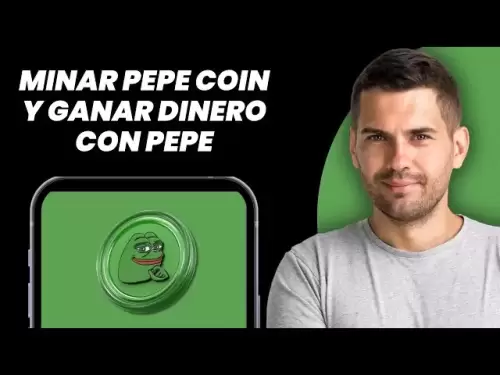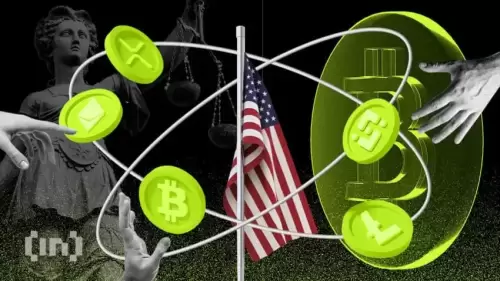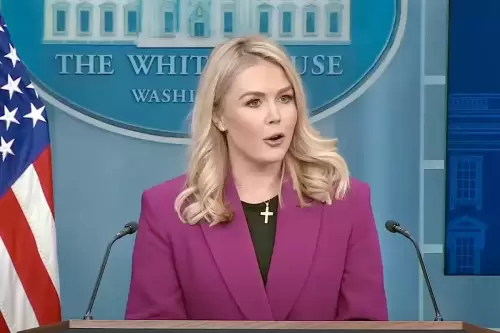 |
|
 |
|
 |
|
 |
|
 |
|
 |
|
 |
|
 |
|
 |
|
 |
|
 |
|
 |
|
 |
|
 |
|
 |
|
Cryptocurrency News Articles
Have you checked your couch for change lately?
May 28, 2025 at 02:11 am
Not as many people are using coins these days, and President Donald Trump has ordered the Treasury to stop minting pennies because their production cost exceeds their value.

Have you checked your couch for change lately?
Not as many people are using coins these days, and President Donald Trump has ordered the Treasury to stop making pennies because their production cost exceeds their value.
Pennies will still be legal tender, but cash prices will soon be rounded up or down to the nearest nickel (which cost even more to produce relative to their value than pennies). There are about 114 billion pennies in circulation, according to the Federal Reserve.
Many Americans may never notice the loss.
American consumers made only 16% of their payments in cash in 2023, according to the Federal Reserve. A 2022 Pew survey found that two-fifths of consumers never use cash at all, and experts say the pandemic kicked cashless payments into high gear.
We throw away millions of dollars in coins every year. Certain groups of Americans – lower-income households, and those over 55 – still use plenty of cash, the Fed found, along with people who prefer to shop in person. But many others let coins roll away, get lost in the dryer, or drop them unceremoniously into a coin jar, never to be thought of again.
So, what should we be doing with our piles of change?
Cash in your coins at Coinstar, Publix or your bank
The loose coins lying around your house and between your cushions are still money, and it adds up more than you'd think.
The typical household is sitting on $60 to $90 in lost or neglected coins, enough to fill a couple of pint-size beer mugs or a medium-sized piggy bank, according to the Federal Reserve. Coinstar, those coin-cashing machines in supermarkets and Walmarts, converts $3 billion in coins into spendable cash every year, one coin jar at a time. The average jar yields $58 in buying power.
"People underestimate the value of their jar by about half," said Coinstar CEO Kevin McColly. "It's a wonderfully pleasurable experience. People have this sensation of found money."
Granted, McColly has a vested interest. His company takes a small cut of the coins that consumers deposit, generally up to 12.9% of the total and 99 cents per transaction, according to NerdWallet.
There are over 20,000 Coinstar locations around the world and you can exchange coins for cash, e-gift cards, tax-deductible charity donations and cryptocurrency. There is no fee if you opt for the e-gift cards, though.
Some regional stores also take in coins. Publix supermarkets have their own coin sorting machines that provide receipts to exchange for cash at the Customer Service counter. The fee runs about 9-10% of your total and only allows you to exchange for rolls of cash.
If you want every bit of your cash value, try your bank.
"You can go to your own bank or credit union and not pay any fee," said Kimberly Palmer, personal finance expert at NerdWallet. However, Bankrate points out that some banks may charge a fee, and even the free ones may require you to roll the coins yourself.
Coins aren't clutter, they're currency
Don't think of your coins as clutter, McColly says. Think of them as recyclables.
"They're metal," he said. "And they have a long and useful life."
And if people gathered up their "idle" coins and recycled them back into the monetary system, we wouldn't have to make as many new ones. The Treasury still mints more than 5 billion coins a year, although the figure is dropping, according to the journal CoinNews.
"Those are just natural resources coming out of the Earth," McColly said: Copper-plated zinc for pennies, copper-nickel alloys for nickels, dimes and quarters.
Which countries have gotten rid of pennies?
Canada stopped minting pennies and even asked businesses to return them to financial institutions starting in 2012. The coins in circulation are still valid.
Great Britain, Australia, Israel, Brazil, Norway, Finland and New Zealand are among nations that have either ceased to produce or have removed low-denomination coins, Reuters reported.
"We've been much slower than parts of Europe and Asia to adopt mobile payments and contactless credit cards," said Ted Rossman, a senior industry analyst at Bankrate.
How much does it cost to make pennies and nickels?
The raw material prices of copper, nickel and zinc have risen in recent years, and the Mint has had to make more coins to cover the drop in inventory during the pandemic. The familiar copper-looking coin with Abraham Lincoln's profile on it runs about 3.7 cents to produce as of fiscal year 2024, according to the U.S. Mint
Disclaimer:info@kdj.com
The information provided is not trading advice. kdj.com does not assume any responsibility for any investments made based on the information provided in this article. Cryptocurrencies are highly volatile and it is highly recommended that you invest with caution after thorough research!
If you believe that the content used on this website infringes your copyright, please contact us immediately (info@kdj.com) and we will delete it promptly.





























































